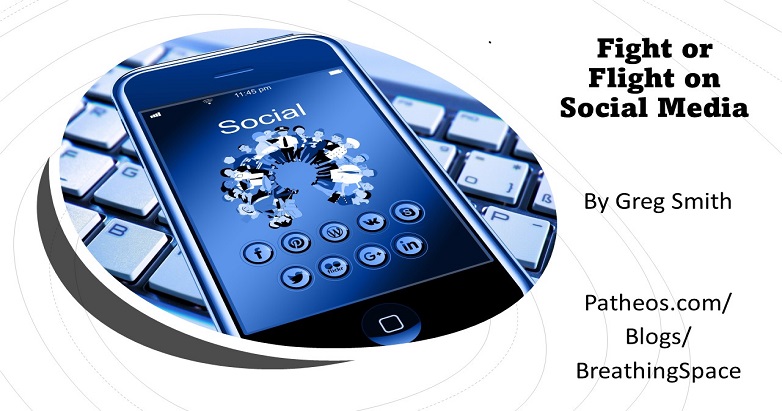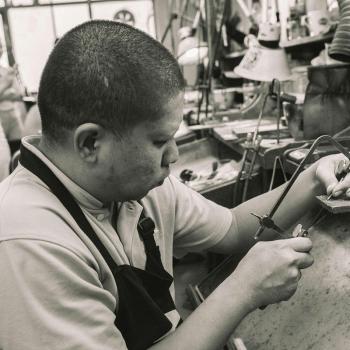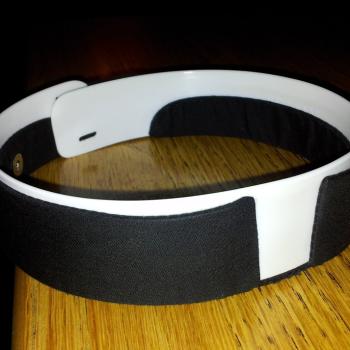I’ve lost a lot of “friends” on Facebook over the last couple of years, because of my stance on social issues. Most of these don’t bother me—but a few have been people I once considered dear. There’s a difference between “friends” on social media, and actual friends. It hurts the most when precious people argue with you on the internet’s public forum, or when they drop you altogether.

Is the Carnage Virtual?
Studies show that when we’re on social media, we act differently than we would in “real life.” In online platforms we can post anonymously or use a handle that few people know, freeing our inhibitions and allowing us to “tell it like it is.” This means, of course, that we go for the jugular far sooner or more often than we would if we were face to face with someone with whom we disagree. We can lay people out with relative impunity. We visit a friend’s page, read their “wrong opinion,” and feel we can’t restrain ourselves. We’ve got to set them straight. Abandoning kindness altogether, we light a fire that burns down their online world. We do it so often that it’s become casual. We don’t worry about it because the carnage is only virtual. Or is it?
What You Say Matters
The things we say online have consequence. You have the power to make a person feel loved and accepted, or judged and rejected, by the words you use online. Especially in this time of social isolation, many people find community online more readily than they can in person. What you say on the internet matters, and once you say it, those words never go away.
Before you comment, think how you feel when someone drops a bomb on your feed. Your heart starts to race, you begin to sweat, your eyes enlarge, your lips twitch, and you check yourself to see if you peed just a little. Why does another person’s rude comment generate such physical reactions? Because this online world is a new thing, and your body interprets the negativity as a real-world threat. Your body engages the fight, flight, or freeze response to a stimulus that it mistakenly believes to be a physical danger.
Fight
On social media, when you decide to fight, you unleash a torrent of words that you can’t put back in the toothpaste tube. Even if you think better of it and delete your comment or post, others have already read what you said, and judged you accordingly. You’ve already damaged friendships and hurt people’s feelings. Fighting online may seem harmless, but “the tongue has the power of life and death (Proverbs 18:21 NIV).” So does the keyboard. With words you have the power to create or destroy–it’s a God-like power that carries with it a great responsibility.
Flight
Perhaps your flight reflex has kicked in, and you’ve deleted a post because it gets too many negative comments. You’re fleeing the aggression that others have shown. Or maybe you’ve taken a hiatus from social media because you found that your anxiety kicked up too much from the things you were reading. You may have even made your flight more dramatic by posting all about your Facebook moratorium. You do this because you want them to know that you’re taking a break from all their foolishness.
Freeze
On social media, the freeze reflex looks like unfollowing other people. You can’t be assertive enough to unfriend them—you don’t want them to feel like you’re unfriending them in real life. So, you “mute posts from this person for thirty days” or longer. You just choose not to deal with it. You’ve frozen because you can’t fight about whatever offended you, but you can’t make yourself flee, either. Freezing seems like the most peaceful solution, but often leaves you feeling like you didn’t stand up for your beliefs.
What Can You Do?
If you know that your fight, flight, or freeze reflex gets triggered by social media so that your body has anxious physical reactions, what can you do about it to bring a bit more peace?
- Remember that others feel the same way and that your posts and opinions offend them just as much as theirs bother you.
- Give the other person the same latitude online that you would if you were face to face. Don’t let anonymity make you say or do something you would never dream of in real life. Be kind, as you would like them to be kind.
- Remember that you can take a mindful break that’s not fighting, fleeing, or freezing. You can walk away from an online conversation without compromising your principles.
You can be a person of peace and love and still speak the truth. Remember, if you’re going to have influence, you must relate to others in a way that makes them want to continue engaging with you. If you make them feel like they must fight, flee, or freeze, you’ve already lost the debate.












